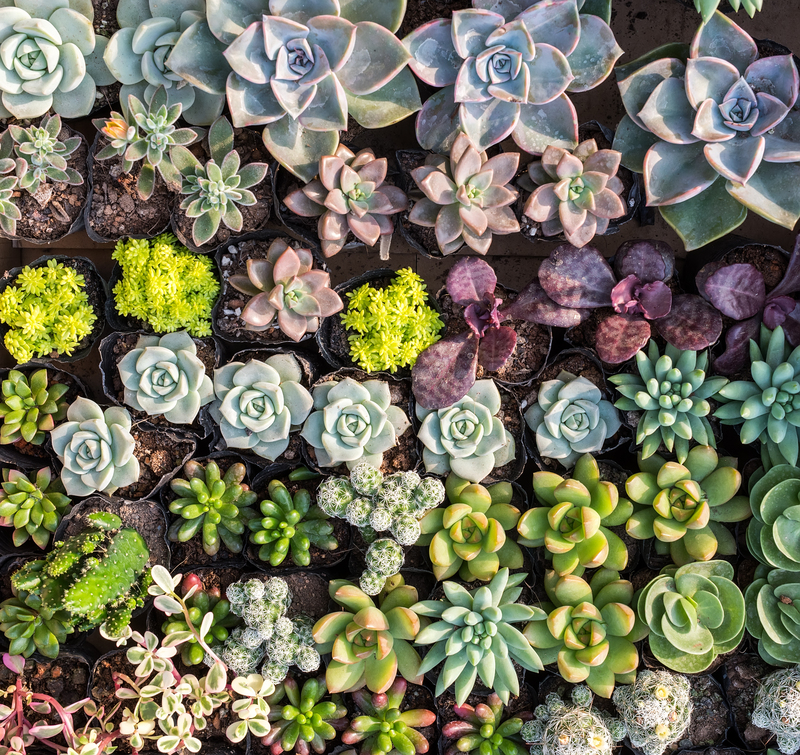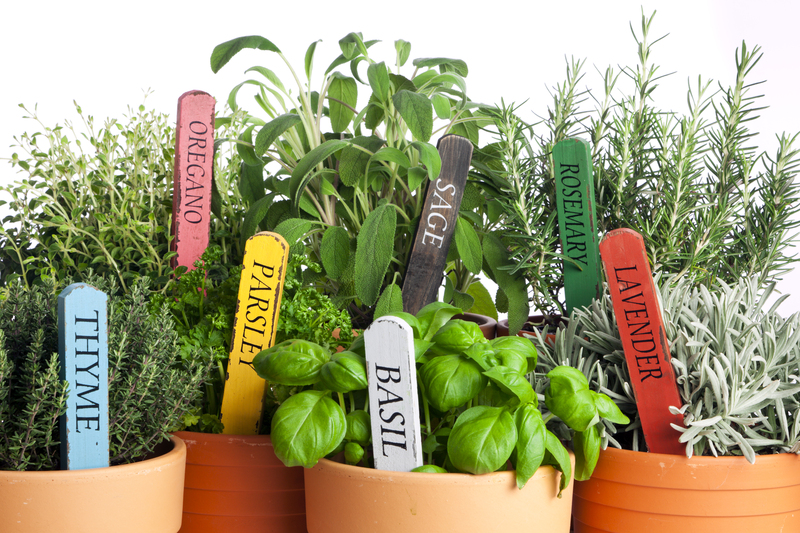Gardening Victory: 3 Tips to Combat Weeds
Posted on 01/07/2025
Gardening Victory: 3 Tips to Combat Weeds
Achieving a lush, flourishing garden is a dream for many gardeners. However, the relentless invasion of weeds poses a formidable challenge. Weeds not only compete with your plants for resources but can also introduce pests and diseases. If you're determined to claim victory in your garden, mastering weed control is essential. In this comprehensive guide, we'll explore three highly effective ways to combat weeds and keep your space beautiful, healthy, and productive. Read on for expert, practical advice on winning the war against weeds!

Why Winning the War on Weeds Matters
Weeds are more than just unsightly distractions--they are aggressive competitors. By stealing crucial sunlight, nutrients, and water from your desired plants, weeds can rapidly diminish your garden's health and yield. Certain invasives, like bindweed and crabgrass, can spread extraordinarily fast, seemingly overnight.
Securing your gardening victory means staying several steps ahead. The following weed management tips will help safeguard your plot so that your flowers, vegetables, or shrubs can truly thrive.
Tip 1: Master the Art of Mulching
Mulching is an age-old gardening technique and remains one of the most reliable strategies for suppressing weed growth. Strategic mulching not only prevents unwanted plants from taking root but also offers a host of additional benefits.
How Mulch Prevents Weeds from Winning
- Blocks Sunlight: Most weed seeds require sunlight to germinate and grow. Mulch acts as a barrier, dramatically reducing light levels at soil level, thereby preventing new weeds from sprouting.
- Retains Moisture: While mulch starves weeds of light, it helps your desired plants by holding soil moisture, keeping root zones cool and hydrated.
- Improves Soil Quality: Organic mulches slowly break down, enriching your garden with nutrients and beneficial organisms that can outcompete weeds over time.
Choosing the Right Mulch for Effective Weed Control
For garden weed suppression, the type of mulch you select can make a difference. Here are popular options:
- Organic Mulches: Includes shredded bark, straw, wood chips, compost, and leaf mold. Organic types improve soil as they decompose and provide habitats for beneficial insects.
- Inorganic Mulches: Includes black plastic, landscape fabric, and gravel. These are particularly good for long-term weed blocking but don't enhance soil fertility.
- Pro Tip: For annual flower beds and vegetable plots, organic mulches are ideal. For pathways or permanent beds, consider inorganic materials for lasting protection.
Application Matters: For best results, apply mulch after thoroughly weeding your beds. Spread a 2-4 inch layer, making sure not to pile mulch against plant stems or tree trunks, as this can cause rot. Check and replenish mulch yearly for ongoing defense against weeds.
Tip 2: Cultivate Consistency--Manual Weeding and Hoeing
Even the most effective mulching strategy won't eliminate all weeds. Manual intervention--when done correctly and consistently--can make a very real difference in your war against unwanted vegetation. This age-old, hands-on approach is still crucial for controlling garden weeds.
Best Practices for Manual Weed Removal
- Weed Early and Often: Young weeds are weaker and easier to remove. Check your garden weekly and pull weeds as soon as you spot them.
- Remove Roots Completely: Many common weeds like dandelion and thistle regenerate from any root fragments left in the soil. For the best weed control, make sure you extract the entire root, using a hand fork, hoe, or dandelion puller.
- Hoe on Dry Days: Hoeing works best when the soil is dry, allowing cut weeds to shrivel in the sun rather than re-rooting. Sweep over the bed with a sharp hoe at a shallow angle to sever weeds at the soil line.
Make Manual Weeding Less Labor-Intensive
- Garden after Rain: Weeding after rainfall - or after watering your garden - makes the soil softer. Weeds slip out with ease, roots and all.
- Use Ergonomic Tools: Save your back and knees by using long-handled hoes, stand-up weeders, or ergonomic hand weeders designed for comfortable, extended use.
- Keep a Schedule: Allocate a little time each week to weed. Regular short sessions are much easier than tackling a jungle of weeds all at once!
Did you know? Leaving pulled weeds on the soil surface can allow them to re-root, especially if they haven't dried out. Bag or compost weeds (without seeds or living roots) for best results.
Extra Advantage: Hot Water and Vinegar
For those seeking environmentally friendly alternatives to herbicides, boiling water or vinegar can be poured directly on persistent weeds found in patio cracks or pathways. Beware: these methods are non-selective and should not be used on desired plants!
Tip 3: Practice Strategic Planting & Dense Spacing
A highly effective, low-maintenance approach to combat weeds in the garden is to tip the balance in your favor by planting thickly and strategically. Healthy plant competition helps choke out weeds before they can establish.
How Planting Strategy Suppresses Weeds
- Shade Out Weeds: By planting crops, flowers, or groundcovers close enough together, you deny weeds the light and space they need to thrive.
- Outpaced Resources: Vigorous, healthy plants use up available water and nutrients, leaving little for weeds to exploit.
- Living Mulch: Fast-growing cover crops or low-growing ornamentals act as a living mulch, further shading the soil and crowding out weed seedlings.
Tips for Strategic, Weed-Fighting Plantings
- Use Groundcovers: Groundcovers like creeping thyme, sedum, vinca, or sweet woodruff form dense mats that outcompete weeds in garden beds and under trees.
- Interplanting: Mix compatible vegetables (e.g., lettuce between tomatoes) or combine flowers and herbs to fill gaps, maximizing every inch of growing space.
- Succession Planting: As soon as one crop finishes, fill the space with another--don't leave bare ground that weeds can colonize.
- Edge Beds with Dense Plants: Robust edgers like daylilies or hostas can slow weed encroachment from lawn areas.
Bonus: Many cover crops and dense plantings attract beneficial insects, improve soil quality, and can even enhance vegetable yields! For the ultimate gardening victory over weeds, combine dense planting with mulch and routine weeding.
Additional Weed-Fighting Strategies for the Dedicated Gardener
If you're determined to win the garden weed control battle year after year, consider these advanced tips:
- Rotate Crops: Rotating annual vegetables and crops each season prevents certain weed species from gaining a permanent foothold.
- Solarization: During the heat of summer, covering soil with clear plastic for 4-6 weeks can heat-kill weed seeds and pathogens below.
- Install Barriers: Edging materials or root barriers can slow encroachment from adjoining untamed areas or aggressive perennials.
- Avoid Disturbing the Soil Unnecessarily: Tilling or heavy digging can bring dormant weed seeds to the surface and trigger germination. Only dig where new plants are going in, and cover bare soil immediately.
Weed Control Myths: What Doesn't Work?
Not every supposed weed remedy stands up to scrutiny. Let's debunk a few myths:
- Salt Application: Adding salt to soil can damage roots of desired plants and harm soil biology for years!
- Old Carpet as Mulch: Avoid using synthetic carpet remnants--they can introduce toxins and break down into microplastics.
- Single Weeding Blitz: One major weeding session is never enough. Persistence is key.
- Use of Harsh Herbicides: Chemical herbicides may provide temporary relief, but they can kill beneficial insects, contaminate soil, and pose hazards to pets and pollinators. Reserve for last resort only, and prefer targeted organic solutions wherever possible.

Be Consistent: The True Secret to Gardening Victory
Above all, consistent effort is your most powerful tool. The best way to permanently reduce weeds in your garden is to make weed prevention and removal a regular part of your gardening routine.
- Inspect Regularly: Walk your garden every week. The earlier you catch a weed, the easier it is to pull!
- Don't Let Weeds Seed: Even a single weed allowed to go to seed can result in thousands of new weeds next season.
- Mulch, Plant, Repeat: Each layer of mulch and every dense planting puts up physical and biological barriers against new pests.
Summary: Your Path to a Weed-Free, Flourishing Garden
Victory over weeds is possible! With the right strategy and regular attention, you'll find it far easier to cultivate the garden of your dreams--free of invasive competitors. Here's a quick recap of our top three weed-fighting tips:
- Mulch generously to block sunlight and suppress weed growth.
- Weed consistently by hand and with proper gardening tools, removing weeds before they can seed or take root.
- Plant densely and strategically to shade soil and outcompete emerging weeds.
Remember to add complementary strategies like crop rotation, solarization, and edging for gardens prone to intense weed pressure.
By following these proven, Google-friendly tips to combat weeds, you'll achieve lasting gardening victory, enjoy more productive harvests, and create a more beautiful, relaxing outdoor space. Start today--and let your garden thrive, weed-free!
Latest Posts
Key Gardening Tools Every Enthusiast Should Have
Reclaim Your Yard: Starting a Garden Makeover
Creating a Good-Natured Garden for Little Explorers

